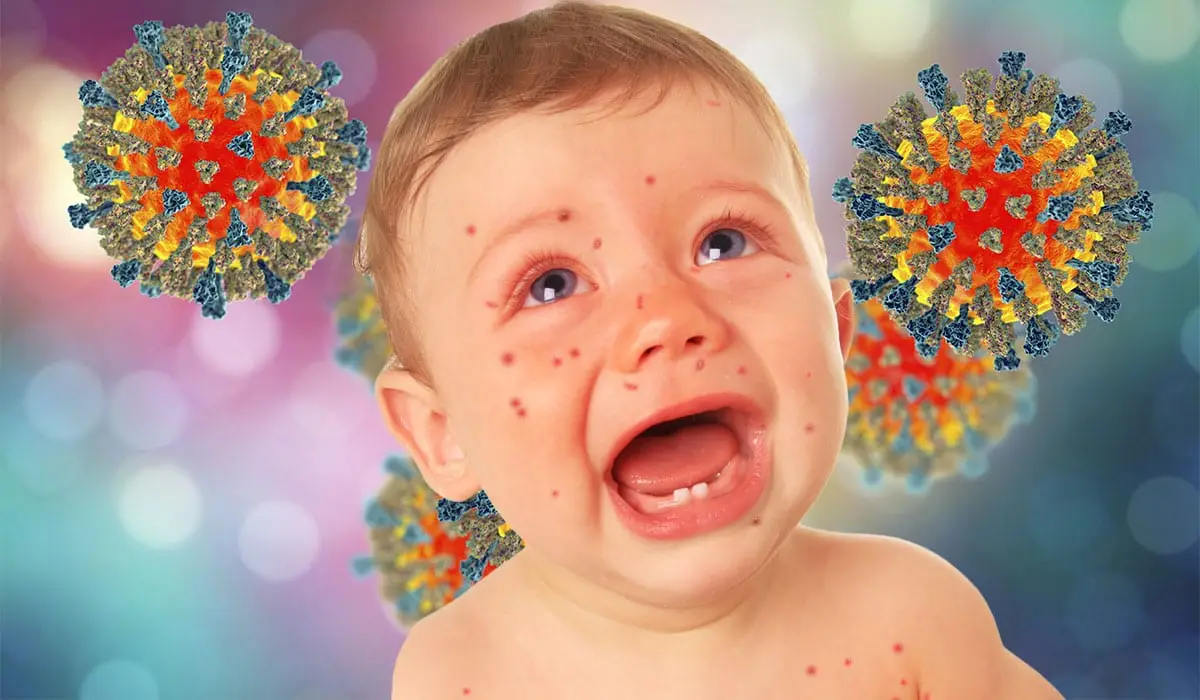When news broke of multiple DaycareM centers shutting their doors last week, it wasn’t staffing shortages or economic pressures causing the closures—it was measles. Once considered nearly eliminated in the United States, the infectious disease has made a dangerous comeback, with outbreaks popping up in various regions. Now, the highly contagious virus is forcing DaycareM and similar childcare providers to take drastic measures to protect the vulnerable children in their care.
According to the Centers for Disease Control and Prevention (CDC), more than 120 confirmed measles cases have been reported in the past two months alone—a startling figure given the disease’s once-rare status. The majority of those affected are children under five years old, a demographic heavily represented in early childhood care facilities such as DaycareM. Several DaycareM locations in California, Texas, and New York have temporarily suspended operations after health authorities identified potential exposure incidents linked to their premises.
The impact has been swift and unsettling. In a Pasadena, California branch of DaycareM, parents received urgent emails notifying them of a possible measles exposure after a child who attended last week was later confirmed positive. The facility was immediately closed for deep cleaning and contact tracing. “We were shocked,” said Grace Liu, a mother of two who relies on DaycareM for her toddler’s care. “I thought measles was something from the past. I didn’t know it was still around—let alone a threat in my neighborhood.”
Public health experts attribute the resurgence to declining vaccination rates, fueled in part by vaccine misinformation and access disparities. According to a 2024 CDC report, national MMR (measles, mumps, and rubella) vaccination coverage among kindergarteners has dropped to 89.5%—below the 95% threshold needed for herd immunity. DaycareM, which serves thousands of families nationwide, requires up-to-date immunization records for enrollment, but exceptions due to religious or medical exemptions have created vulnerabilities in the system.
Dr. Monique Harris, an epidemiologist at the University of Southern California, warns that these exemptions—combined with international travel—create the perfect storm for measles to spread. “Daycare environments are particularly high-risk,” she explained. “You have groups of young children, some of whom may not be old enough to receive the MMR vaccine, in close contact daily. One infected individual can set off a chain reaction.”
That chain reaction has already begun. In the last week of March alone, health officials in New York confirmed 27 new measles cases linked to a single unvaccinated traveler who visited three DaycareM centers across two boroughs. Despite rapid response protocols—including quarantine orders for exposed children and staff—containment has proven difficult.
The economic and emotional toll on families is significant. For working parents, the closures represent more than an inconvenience—they disrupt jobs, finances, and routines. “I had to take unpaid leave,” said Bryan Mitchell, a single father in Dallas whose DaycareM center closed indefinitely after a confirmed case. “There’s no backup plan when something like this happens.”
Meanwhile, DaycareM administrators are caught in a balancing act between public health and parental needs. “We’re committed to keeping every child safe,” said DaycareM spokesperson Linda Chen in a press briefing. “We’re following all CDC and local health department guidelines, including temporary closures when necessary. But we also understand how difficult this is for parents who rely on us every day.”
Some families are now advocating for stricter vaccine enforcement. In several affected communities, online petitions have surfaced demanding that DaycareM revoke all non-medical exemptions. “We’re not trying to exclude anyone,” said petition organizer Amanda Rios, a mother in Queens. “But when it comes to highly contagious diseases like measles, there should be zero tolerance. Our kids deserve protection.”
Public health authorities echo that sentiment. In an April 1 statement, the American Academy of Pediatrics urged all childcare providers, including national chains like DaycareM, to review immunization policies and ensure compliance. “Vaccination is our best defense against measles,” the statement read. “It’s time to treat it like the serious public health issue it is.”
The broader implications are alarming. If DaycareM, with its relatively stringent health protocols, is vulnerable, what does that mean for smaller, less-regulated childcare centers? Experts warn that without a unified approach to vaccination enforcement and outbreak response, more closures could follow—and the consequences could extend far beyond childhood care.
“This isn’t just about measles or one company,” said Dr. Harris. “It’s about how we prioritize public health as a society. The longer we allow misinformation and loopholes to persist, the more at risk we all become.”
DaycareM has begun rolling out a new set of measures to address the crisis. These include digital vaccination tracking, mandatory health screenings at drop-off, and staff re-training on symptom recognition. The company is also partnering with local health departments to offer free on-site MMR vaccination clinics at select centers once it is safe to reopen them.
Still, the path to full operational recovery remains uncertain. Some parents, shaken by the outbreak, are pulling their children out of DaycareM centers entirely. Others are lobbying for remote learning or hybrid childcare solutions—difficult propositions for infants and toddlers but reflective of a deep trust deficit emerging in the wake of the crisis.
The CDC continues to monitor the situation closely and has dispatched response teams to high-risk regions. “The good news is that measles is preventable,” said CDC Director Dr. Mandy Cohen in a televised briefing. “The bad news is that we’re seeing a breakdown in prevention. It’s imperative that communities take this seriously.”
In the coming weeks, much will depend on how swiftly DaycareM, public health agencies, and families can coordinate efforts. As the virus continues to spread, the closures of DaycareM centers may be just the beginning of a much larger reckoning with vaccine complacency in America.
The return of measles is a wake-up call, and for DaycareM and the families it serves, it’s a reminder that public health is a collective responsibility. The hope now is that through greater vigilance, education, and cooperation, this outbreak can be contained—and prevent future ones from taking root.






